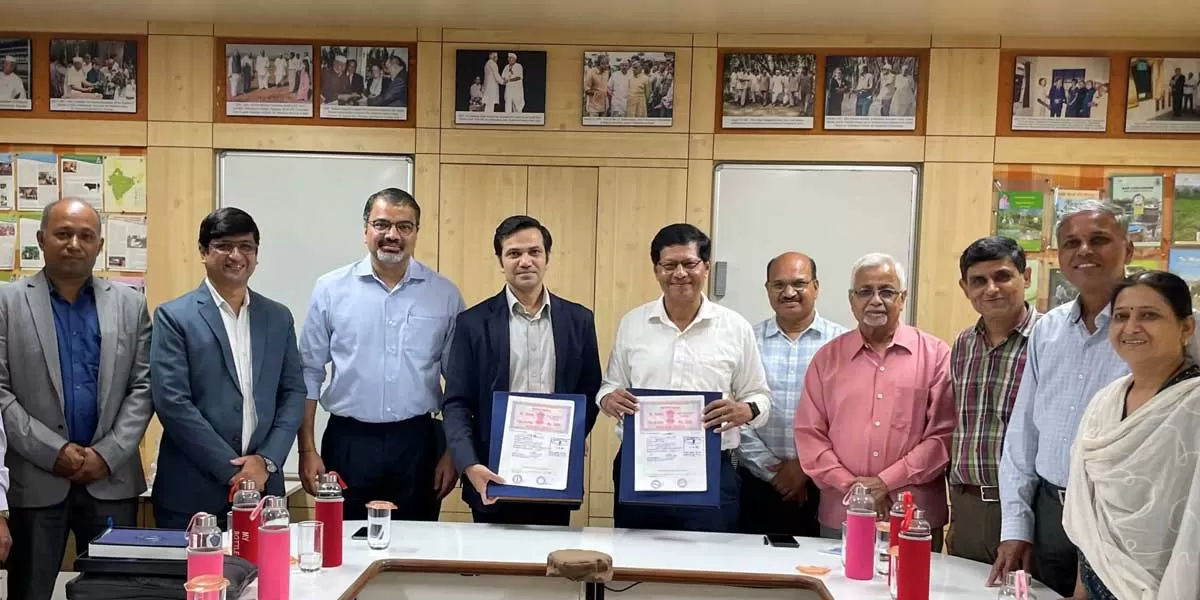Tata Chemicals and BAIF (Bharatiya Agro Industries Foundation) have signed a Memorandum of Understanding (MoU) aimed at fostering rural development and promoting green solutions in India. This collaboration aligns with both organizations' mission to advance sustainable practices in rural communities by leveraging their expertise in agriculture, livelihood development, and renewable energy solutions.
Strategic Focus on Rural Development: The MoU focuses on improving the socio-economic conditions of rural communities through a variety of initiatives. Tata Chemicals, a key player in the chemicals and sustainable agriculture sector, will work alongside BAIF to enhance the livelihoods of rural populations, primarily in regions where farming and agro-based industries form the backbone of the local economy.
Green Solutions and Sustainable Agriculture: The collaboration aims to introduce sustainable farming practices that increase agricultural productivity while minimizing environmental impact. Both organizations plan to integrate eco-friendly technologies into farming, such as the use of renewable energy for powering irrigation systems, promoting organic fertilizers, and employing water-efficient techniques. These green solutions will help address the challenges posed by climate change, resource scarcity, and erratic weather patterns that adversely affect rural farmers.
Livelihood Enhancement: A key component of the partnership is the development of income-generating opportunities for rural residents. Tata Chemicals and BAIF will provide skill development training for farmers and rural youth, empowering them to adopt modern farming techniques and entrepreneurship. These programs will be designed to promote self-sufficiency by enabling rural communities to diversify their income sources beyond traditional farming.
Renewable Energy Integration: As part of the focus on green solutions, the partnership will explore ways to incorporate renewable energy in rural settings. Solar energy and biogas solutions will be promoted as alternatives to traditional energy sources, reducing dependence on fossil fuels and helping communities achieve energy security. The initiative also aims to reduce carbon footprints and promote sustainable energy solutions that are both affordable and accessible.
Community Engagement and Awareness: The MoU emphasizes the importance of community participation and awareness-building. Various outreach programs will be organized to educate rural populations on the benefits of adopting sustainable agricultural and energy practices. Workshops, demonstrations, and pilot projects will serve to familiarize farmers with new technologies and green solutions, ensuring broader acceptance and implementation.
Supporting National Agendas: This partnership aligns with India?s broader goals for rural development and sustainability. By addressing rural livelihood issues and promoting green energy adoption, the initiative contributes to key national programs such as Doubling Farmers' Income and the National Solar Mission. The project also supports the government?s vision of achieving carbon neutrality by promoting renewable energy at the grassroots level.
Impact on Local Economies: The MoU will not only benefit rural communities by improving their quality of life but also enhance the resilience of local economies. With better access to sustainable farming tools, resources, and energy solutions, rural populations will be better equipped to withstand the economic challenges posed by climate change, fluctuating commodity prices, and declining natural resources.
Sustainability Leadership: Both Tata Chemicals and BAIF are recognized for their leadership in sustainability and social responsibility. Tata Chemicals has been at the forefront of promoting green chemistry and sustainable agricultural products, while BAIF is a pioneer in rural development and natural resource management. Together, they will leverage their resources and expertise to create long-lasting, positive impacts on rural communities.
This partnership between Tata Chemicals and BAIF represents a significant step toward empowering rural India with sustainable solutions, helping to secure a greener future for both people and the environment.





















